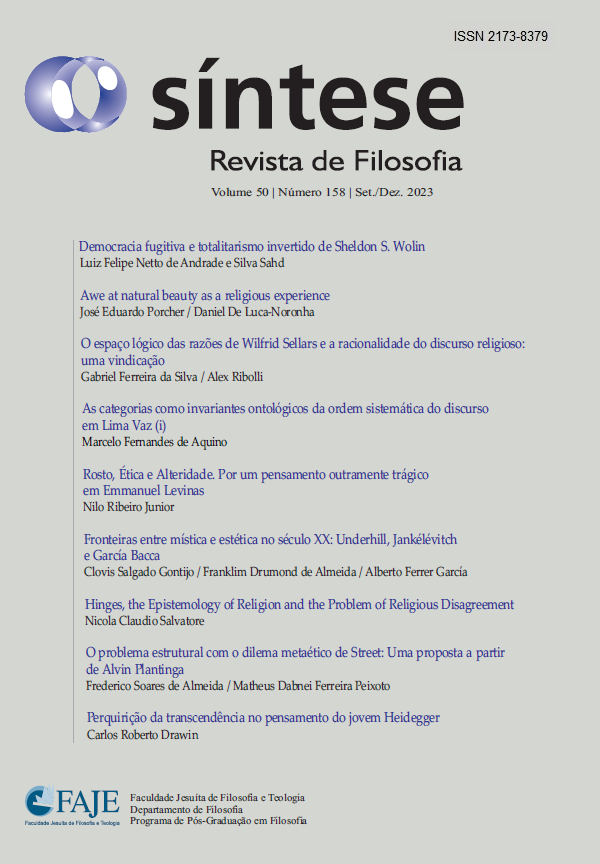FACE, ETHICS AND OTHERNESS. FOR AN OTHERWISE TRAGIC THINKING IN EMMANUEL LEVINAS
DOI:
https://doi.org/10.20911/21769389v50n158p489/2023Abstract
The following investigation aims to highlight the reasons why Emmanuel Levinas’ philosophy of alterity can be (re)positioned beyond its then-recognized link to phenomenology. It is a question of placing it, paradoxically, on the list of tragic thinking, thanks to its opposition to the romanticism of modern philosophy’s Idealism. However, as the focus of the author’s reflection is explicitly on the sui generis ethics that springs from the visceral relationship/interpellation arising from the contact/saying of a human Face that cannot be reduced to the Logos, it is urgent to emphasize, on the one hand, a certain approximation of his thought to both the genealogy of morality in Nietzsche and the original ontological ethics in Heidegger. On the other hand, the aim is to point out a certain distance between this other nihilism that is consolidated around the ethics of alterity and the thinking of the aforementioned tragic philosophers. After all, the ethics of the Face aims to think differently about the transmutation of values that no longer have as their object the will to power and/or the care of Existence by the human being. Thanks to the radical (alter)action of the human condition brought about by the proximity of the Other-next, a subjectivity emerges in this scenario that is characterized by authentic mothering and a substitution for another. With these observations in mind, we will try to describe the indelible traces of a certain disruptive nihilism present in the genesis of the tragic philosophy of the Face of the Other.
Keywords: Alterity. Nihilism. Ethics. Philosophy. Language.






























